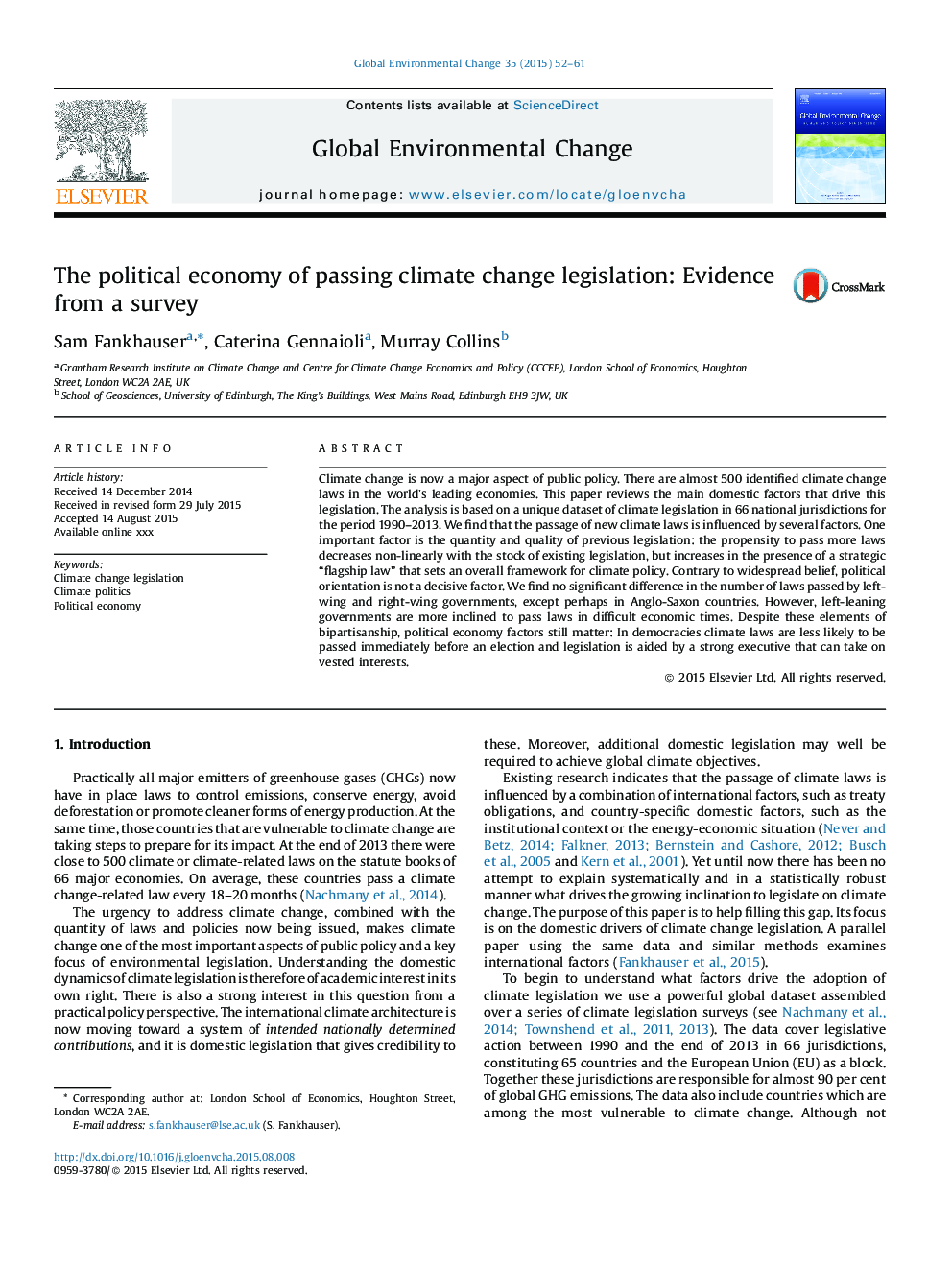| Article ID | Journal | Published Year | Pages | File Type |
|---|---|---|---|---|
| 7469607 | Global Environmental Change | 2015 | 10 Pages |
Abstract
Climate change is now a major aspect of public policy. There are almost 500 identified climate change laws in the world's leading economies. This paper reviews the main domestic factors that drive this legislation. The analysis is based on a unique dataset of climate legislation in 66 national jurisdictions for the period 1990-2013. We find that the passage of new climate laws is influenced by several factors. One important factor is the quantity and quality of previous legislation: the propensity to pass more laws decreases non-linearly with the stock of existing legislation, but increases in the presence of a strategic “flagship law” that sets an overall framework for climate policy. Contrary to widespread belief, political orientation is not a decisive factor. We find no significant difference in the number of laws passed by left-wing and right-wing governments, except perhaps in Anglo-Saxon countries. However, left-leaning governments are more inclined to pass laws in difficult economic times. Despite these elements of bipartisanship, political economy factors still matter: In democracies climate laws are less likely to be passed immediately before an election and legislation is aided by a strong executive that can take on vested interests.
Keywords
Related Topics
Life Sciences
Environmental Science
Environmental Science (General)
Authors
Sam Fankhauser, Caterina Gennaioli, Murray Collins,
